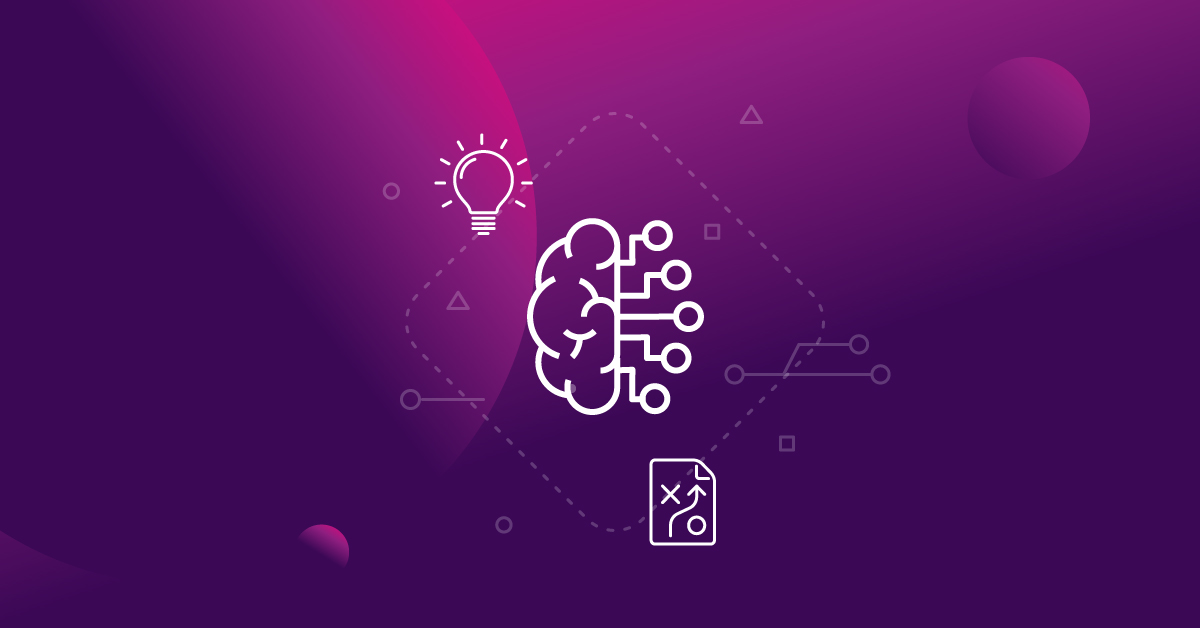Making AI happen

Making AI happen
Data is powering the digital economy – and AI has the potential to transform entire industries. Machine learning is no longer the domain of theoreticians and academics; it’s a commercial imperative for businesses across sectors. But which area of your business should you be focusing on to take things to the next level?
Before investing in the requisite technical expertise and infrastructure to make your business an AI-driven enterprise, it’s important to understand why AI is so important – and then you need to ask how it can drive transformation on a practical level.
Why AI?
The future of business is not AI-augmented – it’s AI-powered. AI offers huge benefits to companies who are willing to explore its potential, transforming data to insight, and insight into action.
Firms are able to employ smart machines alongside their people to intelligently automate processes, enabling them to become more responsive, flexible and scalable.
Furthermore, data is no longer siloed and lacking in context. AI can make it accessible to clients, promoting trust by utilising their data securely, ethically and transparently. And AI can make data – and the actionable insights that stem from it – available to every part of an organisation.
Key AI trends
AI is of critical importance to businesses seeking to evolve and grow in the modern marketplace. But how exactly can AI make an impact?
Several trends currently dominate our conversations with clients in this field; trends that cut across a diverse range of sectors and verticals.
What is clear, that, for AI to be successful and have a lasting impact at scale, it must cut across the entire organisation – going beyond the CDO and influencing the business inside and out.
Here are 4 key trends that need to be addressed to promote wider adoption of AI in business.
Data-driven business – Data must be at the forefront of decision making across the org structure.
We live in the age of the data-driven business. Data can optimise operations, drive growth and improve bottom-line profitability. Customer needs are rapidly changing and becoming more personalised, but a surprisingly small number of businesses are unlocking the true power of data by leveraging AI at scale across every touchpoint. This is a missed opportunity – if scaled in the right way, AI creates value for everyone at every stage of the data supply chain. That means the front, back and middle office must embrace AI – share resource and collaborate wherever possible to drive impact beyond narrow business silos.
Human-centred design – AI needs to be about people, if it isn’t, what do we do it for?
Another key trend we spend a lot of time discussing is human-centred design. AI’s true power lies in its ability to augment human decision making. Ultimately people cannot do this without platforms, experiences and solutions that are easy and intuitive to use. This is true of both consumers and staff, front-end interfaces and back-end user experiences. AI needs to be used by people – people need dashboards and interfaces and tooling that allows them to understand AI and access its insight quickly. AI needs to be designed with people in mind, or adoption rates will be low and what could have been useful AI programs will be deemed as waste. Organisations cannot forget the human aspect of AI.
Humans plus machines – Don’t think about AI replacing human roles – think about what human roles can be improved and impacted by AI.
The media narrative around automation is hyperbolic and reductive. Robots aren’t after us and our jobs; they are taking on mundane roles that free up humans to do (and be) more, delivering a truly differentiated service. Automatic AI-powered solutions augment the human touch, tailoring products and services to clients based on a plethora of data sources. Tapping into the power of AI helps individuals and teams to think creatively, build richer relationships and take the business to the next level. Firms can move from huge teams undertaking manual work at a significant fixed cost, to hybrid teams operating seamlessly with a flexible cost base.
Digital powered services – AI cannot be successful in silos
Everything needs to come together built on platforms that work for everyone. AI enables organisations to develop platforms where clients and those serving them can do business seamlessly in one place. This creates positive feedback loops whereby client adoption enables platforms to source more data that can be used to evolve new digital products and services. The bottom line is that business models are changing, and platforms are the key to successful transformations.
*****
Here at Mudano, we strive to go beyond simply thinking about AI – we spend our time helping clients make AI happen on a practical level.
If you’d like to learn more about the practicalities of integrating AI into your current data practices, please don’t hesitate to get in touch.